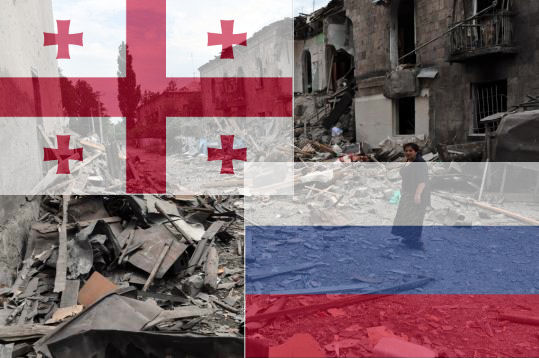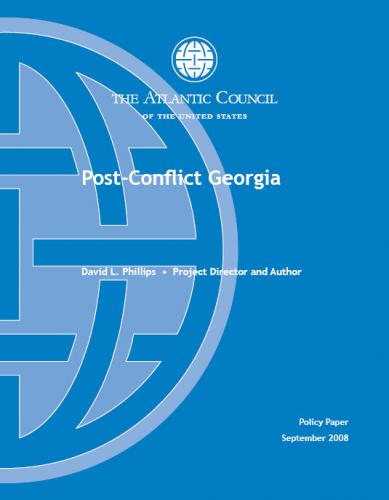
Shortly after the release of the Atlantic Council’s report, Restoring Georgia’s Sovereignty in Abkhazia, Russia invaded Georgia and war broke out over the breakaway region of South Ossetia. The United States and its European partners were put to the test; Moscow’s recognition of South Ossetia and Abkhazia not only challenged Georgia’s sovereignty, but by demonstrating its willingness to use military action, Moscow also sent a message about Georgia’s Euro-Atlantic aspirations as well as the viability of energy transport projects running from the Caspian, through Georgia, to western markets.

In this light, the Atlantic Council considered it a matter of urgency to revisit the issue of Georgia’s future. This report on Post-Conflict Georgia was prepared by David L. Phillips, a non-resident senior fellow at the Atlantic Council of the United States, and director of its “Forum on Georgia and the Caucasus.” Post-Conflict Georgia outlines the tasks facing the Georgian government and the international community, which has a stake in Georgia’s future. It makes important recommendations in support of Georgia’s reconstruction and continued democratization.
The report reflects the findings from the author’s recent fact-finding trip to Georgia on September 13-17, 2008, which involved meetings with Georgian government officials, Georgian civil society, opposition figures, international non-governmental organizations (NGOs), and representatives of the international community. Post-Conflict Georgia is the first product of the Atlantic Council’s new Forum on Georgia and the Caucasus.
Major Conclusions and Recommendations
Georgia should direct its post-conflict efforts to becoming a genuine European state, not a post-Soviet one. Westernization will make Georgia a positive model to Georgians, as well as future generations of Abkhaz and South Ossetians. Post-Conflict Georgia also recommends the following:
- To assess the war, a group of independent “Wise Persons” from western countries should constitute a “Commission of Inquiry” and a competent international body should investigate Russian and Georgian claims of violations of international law.
- To ensure transparency and accountability of foreign aid, a joint oversight board should be established. Standardized criteria are better than multiple accountability systems, which would be onerous. Funds should be linked to the Georgian government’s meeting democracy benchmarks.
- To address the humanitarian emergency, the Georgian government needs a coherent plan focusing on winterization for internally displaced persons.
- To enhance the investment climate, the United States and the EU should both adopt a free trade arrangement and implement a visa facilitation regime.
- To enhance Georgia’s security, the Georgian government should affirm that it will not use force to regain control of Abkhazia and South Ossetia. Only then should arms suppliers replenish military equipment lost in the war. Providing Georgia with defensive weapons systems is a decision best left to the incoming U.S. administration. Western countries should support Georgia’s eventual membership in NATO, but Saakashvili must be careful not to raise expectations unrealistically.
- To strengthen Georgia’s democracy, the Georgian government should implement constitutional reform limiting presidential power. Support for independent media and opposition parties should be expanded. A “patriot act” for Georgia is a bad idea and should be abandoned.
- To intensify EU cooperation, this paper proposes a pro-active role for the EU in post-conflict arrangements between Georgia and Russia. It also proposes broadening the European Neighborhood Policy (i.e. “ENP-plus”).
Realistically, Georgia has no hope of restoring its control in Abkhazia or South Ossetia in the near term. Georgia must not, however, abandon the Abkhaz and South Ossetians to Russia. Track two activities and commercial ties would represent constructive interaction. The Georgian government should upgrade its constitution enshrining group/minority rights and decentralizing power. To show it is serious about supporting Georgia’s sovereignty, the United States and Europe should participate in a coordinated international effort to sanction individuals and corporations illegally visiting, trading, or investing in Abkhazia or South Ossetia.
Image: PostConflictGeorgia.jpg
